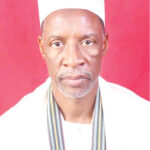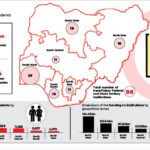Interview into the Civil Service is generally divided into three phases namely part I, initially discussions which centres on the candidate. The purpose for this interaction is to size the candidate’s communication abilities. How effective or otherwise does a candidate is able to communicate. One most demonstrate that he/she has capacity to give clear, concise, precise and unambiguous messages. Part II of the interview process centres on the candidates area of specialization. This is the professional and or technical skills assessment. Candidates are being measured to know the level of proficiency. Candidates are expected to demonstrate sufficient knowledge of the subject matter or field of study. Indeed one must be able to defend the certificate being presented to back up the application. Responses from candidate would determine whether the candidate passed through the institution so claimed in the application form completed and submitted. Finally part III of the interview process would involve a bit of deep knowledge of the area of study of the candidate. Panel members would consist of seasoned staff with vast knowledge in the field of study of a candidate. The purpose of these questions is basically to test some level of character of a candidate. Candidate is seldom required to know all the answers to the questions under this section as they are usually advanced.
If, however, a candidate knows the answers and supplies them correctly, this becomes a plus and a star performance. Whereas always a candidate does not know and he/she confess the ignorance, it becomes a mark of integrity and big plus to the candidate. However, where a candidate does not know the answers and one tries to be smart by dribbling the panel members, such a candidate is considered an untrust worthy, crook and a potential cheat if ever hired.
From the foregoing, one can clearly see the differences and certain areas of similarities in the processes leading to securing job placement in both private and public sectors. It is hoped that with the above notes, the aspects of Public/Civil Service have been covered even if not in minute details. Contents of resume and application for employment letters are universal and the same. Even where there are differences, they are usually minor and may not matter much to the extent of affecting a candidate’s chances of being considered.
On the issue of offer of employment, the Civil Service has a unique structure and system which has been time tested. Unlike in the Private Sector where one may be able to negotiate a pay, offer of employment from the Civil Service is cast in stone. It is a take or leave affair. Condition of service is governed by the civil service rules.
Upon receipt of an offer for employment into the service, candidate is expected to proceed with acceptance of the offer and commencement of documentation. This process can weeks to complete for the state’s civil service, this exercises are done in the State Civil Service Commission Headquarters while for the Federal Civil Service, it is conducted in Abuja at the Federal Civil Service Commission.
The newly recruited civil servants are then organised and arranged to start induction programme before posting. The induction programme can be a few days, weeks to maximum ninety days. In the case of the Civil Service, induction programme is conducted at the Public Service Institute and involves lectures and presentations on all aspects of the service. Usually, serving and retired Civil Servants are the facilitators in the institute.
In the case of States Civil Service, some states have Staff Training Centres where such induction programme/course are held. While many do not have facilities for such training.
The induction course usually covers areas such as financial regulations, public service rules, stores regulations, as well as general knowledge. The office of the Head of Service in both State and Federal levels manage this process and issue certificate of attendance to participants.
On completion of the ‘class room’ induction programme newly recruited staff returns to the Civil Service Commission for posting to primary ministry. Recently, there has been slight change in certain areas of the service. Some ‘technical’ or ‘core’ staffs as they are called are posted to Ministry or Agency managing such competencies such as Legal, Accountancy, Culture, Information etc.
Additional trainings are offered while staff is already posted and serving. These trainings are administered in institutions such as Administrative Staff College of Nigeria, Center for Management and National Institute for Policy and Strategic Studies to mention but a few.
Lawyers are posted to Ministry of Justice to commence on the job training and induction before final posting. The same thing goes for other specialised fields such as accountancy as stated earlier. Other specialised field’s officers such as medical practioners, information, Foreign Service, culture etc officers are posted to their respective ministries for deployment and subsequent on the job induction programme.
Over time and with continuous training and attachment, the newly employed becomes part of the system and would be given schedule of duty with clearly defined reporting line.
The journey to becoming a career civil servant would thus commence.
I am remain sincerely grateful for the inputs I received from Mallam Abubakar Udu Muhammad mni and Mallama Amina Usman for these sub-series on civil service.
“Recite: In the name of thy Lord who created man from a clot. Recite: And thy Lord is the Most Generous Who taught by the pen, taught man that which he knew not.” (Quran, 96:1-5)
Therefore encourage one another and build each other up, just as in fact you are doing (1 Thessalonians 5: 11)

 Join Daily Trust WhatsApp Community For Quick Access To News and Happenings Around You.
Join Daily Trust WhatsApp Community For Quick Access To News and Happenings Around You.


